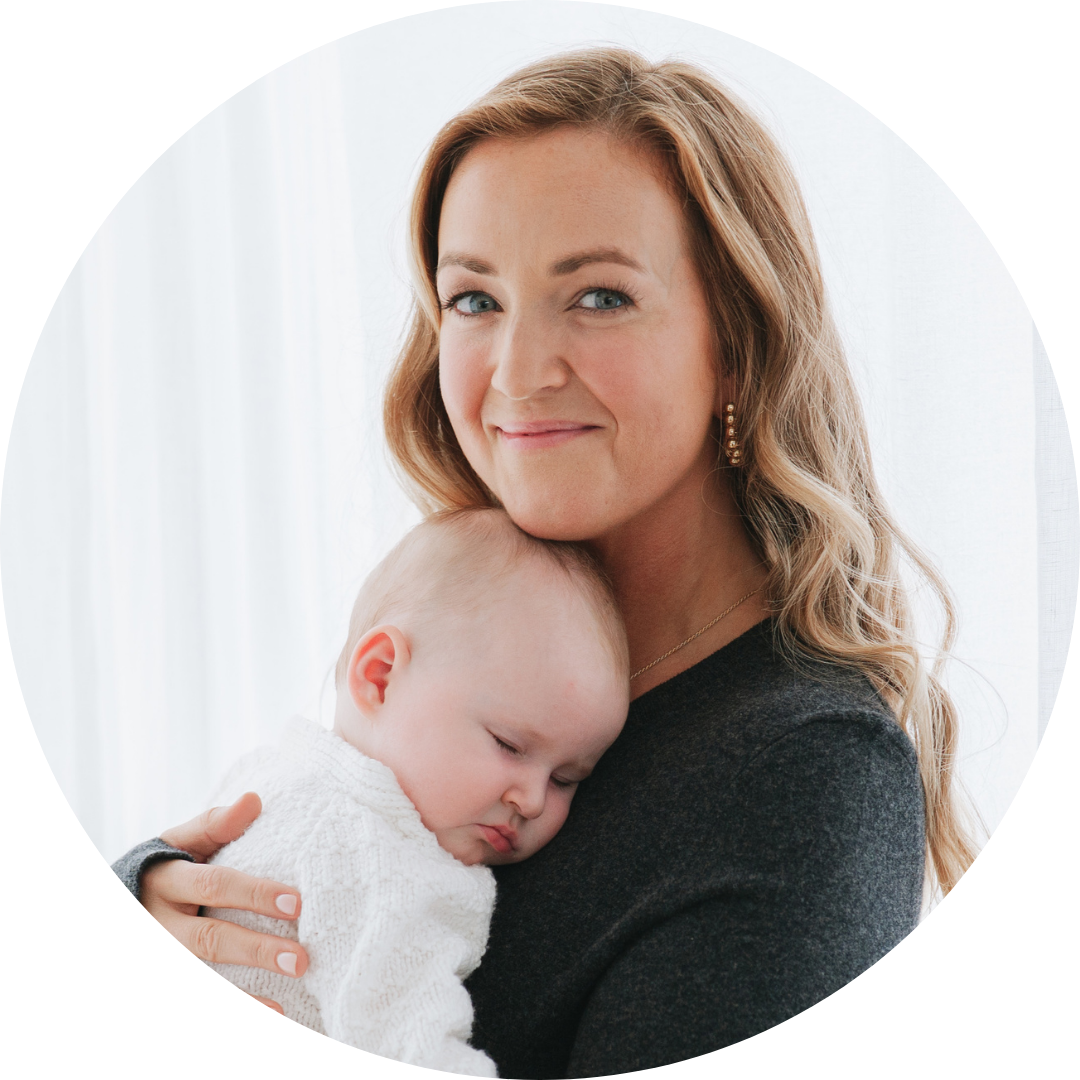The biggest misconception about the four month regression is that all babies are affected by it. They aren't.
I'm sharing every detail of how I avoided the 4 month sleep regression with my son Jago in this blog. While other parents were dealing with sudden sleep disruptions and frequent night wakes around the four month mark, Jago continued sleeping peacefully through the night and taking consistent long naps. He still sleeps amazingly now...
Understanding the 4 month sleep changes
The change that happens to babies' sleep around the four month mark is universal and it's a permanent change in sleep. Basically what's happening is that babies' sleep cycles change at this stage and become more like adult sleep cycles.
But why does that matter? For a lot of babies, they begin to wake more frequently. And often - methods that were previously working beautifully at settling your baby, for example feeding or rocking-to-sleep - stop working so well.
The other reason it can feel stressful is that you've been lured into a bit of a false sense of security! All you hear from people before having a baby is how bad the sleep is ("Just you wait"!) but then you find that you’re getting a few long stints of sleep at night or some long naps...it's all feeling quite manageable. And, without having done anything intentional with your little one's sleep.
Cue: secret smugness!
But then, BAM! It all changes circa 4 months old and you suddenly understand what everyone was talking about.
However, what's NOT widely known is that if you start working on sleep prior to 4 months (aka the new born stage) then often you don't experience any negative difference or regression in sleep around 4 months old.
And that is because if babies are able to settle themselves independently it doesn't matter how long their sleep cycles are - they're able to get comfy, have a stretch and then go back to sleep happily and easily.
Or if your baby is over 3 months old, my Free Self Settling Masterclass goes through the exact 3 part method I used to get my baby sleeping through the night from 4.5 months that’s now helped 8000+ parents worldwide.
The science behind sleep cycles
To understand why some babies experience the four month regression whilst others don't, we need to look at what's happening biologically. During the first few months of life, babies spend around 50% of their sleeping time in what's known as "active sleep." Active sleep can look quite wakeful and can be noisy - think very snuffy and snorty, moving around in the crib and eyes sometimes opening.
As new parents, we can sometimes confuse active sleep with our babies waking during the night. And then we accidentally wake them when we try to intervene to settle them! So as a rule-of-thumb, unless your baby is crying, do not intervene. Give your baby space as often they will simply be coming in and out of sleep cycles and will settle themselves back to sleep.
Around 3-4 months, babies start producing the hormone 'melatonin', which is known as the sleepy hormone and helps to put their sleep cycles into a more regular rhythm. This is actually a positive development - it means their sleep is maturing and becoming more organized.
However, if a baby has become used to falling asleep with rocking, feeding or in their parents' arms, they will struggle to fall back to sleep by themselves when they naturally rouse between sleep cycles.
The average sleep cycle for a baby during the day is approximately 30-45 minutes with longer ones at night. Some babies who have become used to falling asleep using external help will struggle to connect their sleep cycles together during the night to make a longer stretch of sleep. This is also why some babies can only nap for a maximum of 30-45 minutes at a time - they are unable to connect their sleep cycles independently.
Our experience avoiding the regression
This is what happened with my son's sleep. We worked on his sleep from the beginning, giving him opportunities to fall asleep independently without any pressure, optimising his sleep environment and introducing a gentle daytime routine.
He was happily doing consistent 2 hour naps and 8 hour overnight stretches by the time he was 10 week old. And then after that, there was no worsening of his sleep at all. In fact, quite the opposite. By 4.5 months he naturally dropped the feed he'd been having around 10.30pm up to that point, and began sleeping 12 hours through the night consistently.
Key elements for avoiding the 4 month regression
1. Start early with independent sleep
The most crucial factor in avoiding the four month regression is teaching your baby to fall asleep independently before that stage. This doesn't mean leaving them to cry - it means giving them opportunities to practice settling in their sleep space with your support and guidance.
2. Optimize their sleep environment
Creating the perfect sleep environment is absolutely essential for good sleep, particularly when you're trying to prevent sleep regressions. Your baby's sleep space should be optimized in the following ways:
Darkness: The darker the room is, the better. Darkness helps the production of melatonin, the sleepy hormone, so it is essential for sleep. Natural light tells the body that it is time to wake up, so from around 10-12 weeks onwards, darkness really helps with sleep.
Temperature: Keep the room temperature between 16-20 degrees Celsius. Although this feels on the cooler side, babies actually sleep better when the room is slightly cooler and they are dressed accordingly.
Clear sleep space: Keep the crib clear with a firm mattress. So no loose pillows, bedding or toys. This is primarily for your baby's safety but also so that they associate their sleep space with sleep and not play.
White noise: Many babies sleep better with white noise - they're used to a noisy womb! There is no negative association with using white noise, however just make sure that if you are using it, the white noise is playing continuously throughout the night or nap, rather than stopping after a set period of time.
3. Establish a consistent routine
Both babies and adults thrive on routine, consistency and order. There is something in the theory that if you do the same thing for them during the day, they will do the same thing for you at night.
Regulating the timings of when your baby eats, sleeps and wakes each day will help to bring structure and predictability to your days. Having a solid routine also means avoiding having to worry about potential over-tiredness.
One principle that is central to establishing good sleep habits and central to our method is starting your day at the same time each day and working to a 12 hour day. So for example, starting your day at 7am in the morning and aiming for a 7pm bedtime.
This helps you plan your naps, feeds and eventually meals, and even if you prefer not to follow a routine with set timings during the day, doing this one thing will really help to set your baby's circadian rhythm.
Need a blueprint to follow?
Our Sleep Guides give you a step-by-step plan to follow to help your little one to become a great sleeper.
4. Understand hunger vs habit
Knowing when to try to settle your baby at night instead of feeding between 0-6 months is about looking at how long your baby is generally going between feeds during the day. If they are managing 3-4 hour stretches between feeds during the day but then waking every 1 hour for a feed at night, then you could think to yourself: I'm going to try to re-settle my baby using a different method if they are waking during the night sooner than 2 hours.
If you have peace of mind that they have had a full feed recently and their wake is not going to be due to hunger, then you can try settling them in a different way to see if they are simply needing a bit of comfort.
This is how we start to gently encourage longer and longer stretches of sleep at night.
5. Focus on feeding foundations
Before we can start to make improvements to sleep, it is essential to make sure that feeding is well established. The very first thing to do is to ensure your baby is having full feeds spaced out throughout the day (and night). If your baby is unable to go longer than an hour or so between feeds then they will not be taking full feeds and it's really unlikely they will be able to sleep for any longer stretches of sleep at night.
The importance of daytime sleep
Many parents say to us: "I don't mind the daytimes being a bit rubbish, I just need the night time sleep to get better!" But it's almost always the case that you can't improve the night time sleep until the daytime sleep is working well.
The second nap of the day is particularly crucial. We recommend that all babies have a long nap roughly in the middle of the day. For most little ones, self-settling at bedtime and overnight tends to be easier, and achieving this longer nap can take a bit more time and patience. It's usually the last piece of the puzzle to crack!
What to do if you're already experiencing the regression?
If you're reading this and you're already in the thick of the four month regression, don't panic. It's absolutely possible to work on sleep at this point.
The key is to address all the same areas we've discussed: sleep environment, routine, and independent settling skills. Our Sleep Guides will take you through exactly what you need to do with each of these three areas step-by-step.
Remember, the four month sleep changes are permanent and positive - they represent your baby's sleep maturing. Once you help your baby learn to work with these new sleep cycles, their sleep will become more predictable and consolidated (read:better!) than it was pre-regression.
Looking ahead
This is why I'm so passionate about teaching parents how to help their babies to sleep well and taking the stress out of sleep. Because I know first hand there's an easier way. A no-nonsense method that works. A way to avoid regressions in your little one's sleep. And a way to unlock predictable sleep so that you can reclaim your sense of identity, reconnect with your partner and have the freedom to enjoy life fully.
By starting early, being consistent, and focusing on the three key areas of sleep environment, routine, and self settling, you can help your baby develop healthy sleep habits that will serve your whole family for years to come.
The four month regression doesn't have to be an inevitable part of your parenting journey. With the right approach, this developmental milestone can actually mark the beginning of ever-improving sleep for your little one.
With patience, persistence, and the right approach, you can help your baby become a confident, independent sleeper who doesn't experience the four month regression at all.








